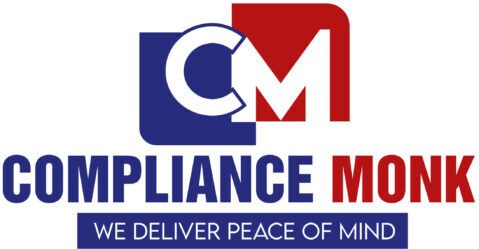
Imagine taking your business to the big leagues, where anyone can own a slice of your success. That’s the magic of a Public Limited Company (PLC)! It’s a corporate entity built for businesses that dream big, allowing them to raise substantial capital by offering shares to the public. Whether you’re envisioning your company’s name on stock tickers or attracting a crowd of investors, a PLC is your ticket to business stardom.
At Compliance Monk, we’re here to make your dream a reality. From navigating legal requirements to securing approvals, our experts handle it all so you can focus on conquering your industry.
Table of Contents
Key Features of a Public Limited Company
- Open to All: A minimum of 7 shareholders is required, but there’s no cap on how many can join the party.
- Leadership Team: You need at least 3 directors steering the ship, but there’s no limit on the number of captains.
- “Limited” Legacy: The word “Limited” in your company name signals your status as a publicly owned entity.
- Transparency is Key: You’ll need a prospectus to woo investors while meeting compliance standards.
- No Minimum Capital Fuss: Decide your capital structure based on your growth plans—flexibility at its best.
Two Types of Public Limited Companies
- Listed PLCs: Shares are traded on stock exchanges, making them a favorite for investors seeking liquidity.
- Unlisted PLCs: Shares are not traded on exchanges, offering more operational flexibility and fewer regulatory hoops.
Why Start a Public Limited Company?
Starting a PLC opens up a world of opportunities:
- Capital Galore: Raise funds from the public to power your ambitious goals.
- Limited Liability: Your shareholders’ risks are limited to their investment.
- Investor Confidence: Stringent regulatory compliance makes your company more attractive to potential investors.
Requirements for Registration
Ready to launch your PLC? Here’s what you’ll need:
- Shareholders: At least 7 (with no upper limit).
- Directors: A minimum of 3 with valid DINs.
- Authorized Share Capital: Minimum ₹1 lakh to get started.
- Digital Signature Certificate (DSC): For at least one director to authenticate documents online.
- Unique Company Name: Must comply with the Companies Act, 2013.
- Foundational Documents: MOA and AOA outlining your company’s mission and governance structure.
Documents Checklist
- Identity Proof: Aadhaar, PAN, or voter ID for directors and shareholders.
- Address Proof: Recent utility bills or bank statements.
- Office Address Proof: Utility bill or property documents.
- Landlord Consent: If your office is rented.
- Digital Signatures: For directors to sign forms digitally.
- MOA & AOA: Your company’s charter and operational blueprint.
Forms Required for Public Limited Company Registration & Post-Incorporation Compliance
Forms Required for Registration of a Public Limited Company
| Form Name | Purpose |
| SPICe+ (Simplified Proforma for Incorporating Company Electronically Plus) | Unified form for company incorporation, DIN allotment, PAN, TAN, GST, EPFO, and ESIC registration. |
| INC-9 | Declaration by subscribers and first directors ensuring compliance with the Companies Act, 2013. |
| INC-13 | Drafting of the Memorandum of Association (MOA) tailored for Public Limited Companies. |
| INC-14 | Declaration by a Chartered Accountant or Company Secretary regarding compliance with regulations. |
| INC-15 | Declaration by each promoter of the company. |
| INC-22 | Intimation of the company’s registered office address. |
| DIR-2 | Consent to act as a director by all proposed directors. |
| DIR-3 | Application for obtaining Director Identification Number (DIN) for directors (if not already allotted). |
| AGILE-PRO | Application for GSTIN, EPFO, ESIC, and other relevant registrations. |
| MOA (Memorandum of Association) | Defines the objectives and purpose of the company. |
| AOA (Articles of Association) | Outlines the internal governance and operational structure of the company. |
Forms Required Post-Incorporation of a Public Limited Company
| Form Name | Purpose |
| INC-20A | Declaration for the commencement of business, mandatory to file within 180 days of incorporation. |
| INC-22 (if not filed earlier) | Notification of the company’s registered office address if not submitted during incorporation. |
| ADT-1 | Appointment of the first auditor within 30 days from the date of incorporation. |
| MGT-7 | Annual Return providing details of shareholders, directors, and company meetings. Must be filed within 60 days of the AGM. |
| AOC-4 | Filing of financial statements, including the balance sheet, profit & loss statement, and director’s report, within 30 days of the AGM. |
| DIR-3 KYC | Annual KYC compliance for directors to validate and update their Director Identification Numbers (DINs). |
| DPT-3 | Annual return for disclosing details of loans, deposits, or advances received by the company. |
| MSME-1 | Half-yearly return to report outstanding payments to Micro, Small, and Medium Enterprises (MSMEs). |
| PAS-3 | Return of allotment for the issue of shares. Filed whenever shares are allotted. |
| SH-7 | For changes in authorized share capital of the company. |
Registration Process
Starting your PLC is easier than you think:
- Bank Account: Set up a corporate account for your transactions.
- Digital Ready: Obtain DSCs for directors.
- DIN Allocation: Apply for Director Identification Numbers.
- Name Approval: Check and reserve your unique company name.
- Incorporation Form: File the SPICe+ form with MOA, AOA, and other details.
- Certificate of Incorporation: Once approved, get your official certificate from the Registrar of Companies (ROC).
- PAN & TAN: For all things tax related.
Why Choose ComplainceIndia?
At ComplainceIndia, we turn the seemingly complex process of registering a Public Limited Company into a breeze. Here’s how we make it easy:
- Comprehensive Support: From securing DSCs to filing forms, we handle everything.
- Regulatory Expertise: We ensure your company complies with every legal requirement.
- Time-Saving Process: You focus on growing your business while we handle the red tape.
Let’s Get Started!
Launching a Public Limited Company is a bold step, but with Compliance Monk by your side, you’ll walk the path with confidence. Let’s build your dream business today—because the public deserves to share in your success!
FAQs
1. What is a Public Limited Company?
A Public Limited Company is a corporate entity that allows the general public to buy shares in the company. It is governed by the Companies Act, 2013 and offers limited liability to its shareholders. Public Limited Companies can raise capital by listing shares on stock exchanges.
2. Who can become a Director in a Public Limited Company?
Any individual above 18 years of age with a valid Director Identification Number (DIN) can be appointed as a director. There are no restrictions on nationality, and both Indian citizens and foreign nationals can be directors.
3. What is the minimum capital required to start a Public Limited Company?
The Companies Act, 2013, does not mandate a minimum capital for registration.
4. Is personal presence required to register a Public Limited Company?
No, the entire registration process can be completed online. However, digital documents, such as identity proof, address proof, and Digital Signature Certificates (DSC), are mandatory.
5. What documents are required for Public Limited Company incorporation?
Key documents include:
- Identity proof (Aadhar, PAN, Passport) for directors and shareholders
- Address proof (Utility bill, rent agreement)
- DSC for directors
- Memorandum of Association (MOA) and Articles of Association (AOA)
- Proof of registered office address
6. How long does it take to incorporate a Public Limited Company?
The process generally takes 7–10 working days, subject to document submission and approval by the Registrar of Companies (ROC).
7. What is the validity of a Public Limited Company once incorporated?
A Public Limited Company has perpetual existence, meaning it continues to exist as a legal entity until formally dissolved, irrespective of changes in ownership or management.
8. What is a Director Identification Number (DIN)?
DIN is a unique identification number assigned to an individual who wishes to become a director of a company. It is mandatory for anyone serving as a director in India.
9. Are there any restrictions on foreign nationals becoming directors?
No, foreign nationals, including Non-Resident Indians (NRIs), can become directors of a Public Limited Company. However, at least one director must be an Indian resident.
10. Can foreign nationals or NRIs hold shares in a Public Limited Company?
Yes, foreign nationals and NRIs can hold shares in a Public Limited Company, subject to Foreign Direct Investment (FDI) guidelines set by the Reserve Bank of India (RBI).
11. What are the FDI rules for foreign investment in a Public Limited Company?
FDI in a Public Limited Company is allowed under both the automatic and government approval routes, depending on the sector. Specific regulations and limits may apply based on the nature of the business.
12. How is a Public Limited Company different from a Private Limited Company?
The key differences include:
- A Public Limited Company can raise funds from the public by issuing shares, whereas a Private Limited Company cannot.
- Public Limited Companies must have a minimum of 7 shareholders, while Private Limited Companies require only 2.
- Public companies are subject to stricter regulatory compliance.
13. What are the different types of Public Limited Companies?
There are two types:
- Listed Public Companies: Shares are traded on stock exchanges.
- Unlisted Public Companies: Shares are not listed on stock exchanges but can be privately traded.
14. What are the advantages of registering a Public Limited Company?
- Ability to raise large capital
- Limited liability protection for shareholders
- Perpetual existence
- Enhanced credibility
- Easy transfer of shares
15. What are the statutory compliances for a Public Limited Company?
These include:
- Holding annual general meetings (AGMs)
- Filing annual returns and financial statements with the ROC
- Maintaining statutory registers
- Adhering to audit and tax compliances
16. How many members are required to incorporate a Public Limited Company?
A Public Limited Company requires a minimum of 7 shareholders and 3 directors to be incorporated. There is no maximum limit on the number of shareholders.
Private Limited Company vs Public Limited Company
| Feature | Private Limited Company | Public Limited Company |
| Definition | A company owned privately by shareholders with restrictions on share transfer. | A company whose shares can be freely traded by the public. |
| Minimum Members | 2 | 7 |
| Maximum Members | 200 | No limit |
| Minimum Directors | 2 | 3 |
| Share Transferability | Restricted. Shares can only be transferred with the consent of other shareholders. | Freely transferable, shares can be traded on the stock exchange. |
| Listing on Stock Exchange | Cannot be listed. | Can be listed and traded publicly. |
| Compliance Requirements | Moderate (less frequent audits and filings). | High (mandatory audits, board meetings, quarterly filings). |
| Ease of Raising Capital | Limited to private investors, venture capital, or bank loans. | Easier through public share issuance (IPO, FPO). |
| Statutory Meetings | No mandatory statutory meetings. | Mandatory (annual general meetings, statutory report submission). |
| Ownership and Control | Owned by a small group (family, friends, close investors). | Owned by the public; control is dispersed among shareholders. |
| Examples | Small-to-medium businesses, startups. | Large-scale businesses, corporate giants. |
